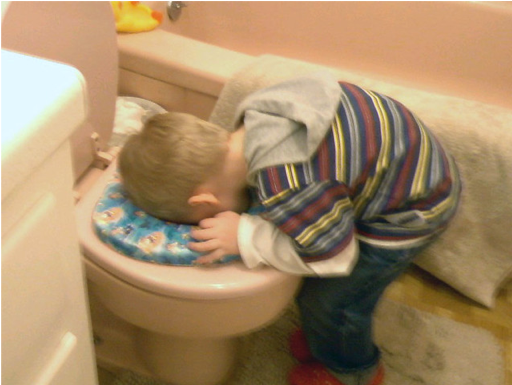Question
What are social-emotional readiness behaviors for potty training?
Answer
- Your child asks questions about pottying.
- Your child wants to follow others into the bathroom.
- Your child tries to imitate adult potty behavior.
- Your child likes clean diapers—she asks to be changed at appropriate times.
- Your child cares about the outcomes of her actions—she expresses likes or dislikes after she does something and if reminded will remember those preferences the next time.
- Your child is willing to sit still to master a task.
from The Potty Training Answer Book
What are social-emotional readiness behaviors? Children are going to ask questions about pottying long before they are potty training. I believe we create a positive potty environment starting at 18 months. We don't start introducing potty training when it's time to potty. We create an immersive culture of potty and body and thinking long before. That's this whole social-emotional soup that brings excitement, interest, and curiosity. Who goes on the potty? Who goes in a diaper? No shame, no blame. Are you wearing a diaper today? Then through those toddler diaper changes, you start saying, “There's pee in here and you made it pee because everyone drinks, everyone eats, everyone pees, everyone poops.” We are creating social-emotional connections to a potty world.
Children want to follow others into the bathroom. We don't have to teach this. We know parents don't get to ever go to the bathroom by themselves. We know that children are very curious about rooms and patterns and routines and behaviors. This is one of our connecting milestones, but also, these are the tools we're going to use when it's time to connect dots to what children have in readiness, and what might be a missing piece of a puzzle.

Figure 1. Boy looking in potty.
They want to imitate potty behavior. In figure 1 you see a little boy who isn’t imitating anybody, but he's curious and experimenting in this picture. All of it is good. All of it is something for us to build on and use as teachers.
If they like clean diapers and they ask to be changed at appropriate times, then we know they're starting to think about it and care about it. They're starting to not like a piece of something that matters for us moving them forward and helping them put the pieces of the puzzle together.
They care about the outcomes of their actions. They express likes and dislikes after they do something. If they're reminded, they will remember those preferences the next time. Remember how fun it was to hear the pee pee going in the potty. Remember how cold it was to sit on the toilet. I can now help you conquer that emotional moment or that stressful moment because you are now interacting with me about this experience.
They have to be willing to sit because pottying requires a little bit of patience. Again, that ultimate word that's going to be so critical for us today, self-regulation.
This Ask the Expert is an edited excerpt from the course, Potty Training at School, by Karen Deerwester, MA, EdS.
